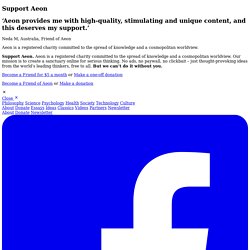

The Psychology Behind Unethical Behavior. Executive Summary Leaders are often faced with ethical conundrums.

So how can they determine when they’re inching toward dangerous territory? There are three main psychological dynamics that lead to crossing moral lines. First, there’s omnipotence: when someone feels so aggrandized and entitled that they believe the rules of decent behavior don’t apply to them. Second, consider cultural numbness: when others play along and gradually begin to accept and embody deviant norms. What It Means To Think Critically. What Does ‘Critical Thinking’ Mean?

By Terry Heick This post has been updated from a 2014 post. The Psychology Behind Unethical Behavior. Executive Summary Leaders are often faced with ethical conundrums.

So how can they determine when they’re inching toward dangerous territory? There are three main psychological dynamics that lead to crossing moral lines. First, there’s omnipotence: when someone feels so aggrandized and entitled that they believe the rules of decent behavior don’t apply to them. Second, consider cultural numbness: when others play along and gradually begin to accept and embody deviant norms.
What lies behind the simplistic image of the happy Buddhist? Tibetan Buddhism, in the pop-cultural psyche of the United States, is the Dalai Lama’s face, grinning from a cover in the self-help section of your nearest bookstore.

It’s a monk in a maroon robe sitting calmly in a full-skull electrode cap as researchers probe his mind to learn how meditation plays into his unique serenity. It’s that over-the-top scene from the film Seven Years in Tibet (1997) in which Brad Pitt is trying to build a movie theatre for the young Dalai Lama in Lhasa in the 1940s when he realises that his local crew has such a strong reverence for life and abiding patience that, to a man, none is willing to harm worms while digging ditches.
Which is to say, Tibetan Buddhism in the US pop-cultural psyche is a monolithic and benign spiritual tradition built around simple wisdom, loving calmness and unflinching non-violence. Sure, compassion is central to the faith. But there’s room for violence as well. Debates rage about how to view this status quo. Philosophers should be keener to talk about the meaning of life. Philosophers ponder the meaning of life.

At least, that is the stereotype. When I risk admitting to a stranger that I teach philosophy for a living and face the question ‘What is the meaning of life?’ , I have a ready response: we figured that out in the 1980s, but we have to keep it secret or we’d be out of a job; I could tell you, but then I’d have to kill you. In fact, professional philosophers rarely ask the question and, when they do, they often dismiss it as nonsense.
The phrase itself is of relatively recent origin. What is the meaning of ‘meaning’ in ‘the meaning of life’? ‘Meaning’ could mean purpose or function in a larger system. Seeing no other way to interpret the question, many philosophers conclude that the question is confused. I think it does. On the interpretation that this context suggests, the meaning of life would be a truth about us and about the world that makes sense of the worst. Daily/weekly updates on everything new at Aeon. Republish Kieran Setiya. La morale sur un plateau. Quelle différence entre donner la mort et laisser mourir ?

L'Influence de l'odeur des croissants chauds sur la bonté humaine - La Reine Blanche. Vous trouverez dans ce spectacle des histoires de canots de sauvetage qui risquent de couler si on ne sacrifie pas un passager, de criminels invisibles, de machines à donner du plaisir, de tramways fous, de poissons d’élevage heureux, de races entières d’animaux qui disparaissent parce qu’on les aime beaucoup.

Vous y verrez des expériences qui montrent qu’il faut peu de choses pour se comporter comme un monstre, et d’autres qui prouvent qu’il en faut encore moins pour se comporter comme un saint : une pièce de monnaie trouvée dans la rue par hasard, une bonne odeur de croissants chauds qu’on respire en passant… Vous serez le troisième personnage, qui s’exprime, peut interrompre la représentation, est dans la représentation. Etienne Klein : innovation et progrès. When Einstein Met Tagore: A Remarkable Meeting of Minds on the Edge of Science and Spirituality. On July 14, 1930, Albert Einstein welcomed into his home on the outskirts of Berlin the Indian philosopher, musician, and Nobel laureate Rabindranath Tagore. The two proceeded to have one of the most stimulating, intellectually riveting conversations in history, exploring the age-old friction between science and religion. Science and the Indian Tradition: When Einstein Met Tagore (public library) recounts the historic encounter, amidst a broader discussion of the intellectual renaissance that swept India in the early twentieth century, germinating a curious osmosis of Indian traditions and secular Western scientific doctrine.
The following excerpt from one of Einstein and Tagore’s conversations dances between previously examined definitions of science, beauty, consciousness, and philosophy in a masterful meditation on the most fundamental questions of human existence. EINSTEIN: Do you believe in the Divine as isolated from the world? TAGORE: Not isolated. Missing Evidence: Can theories work without evidence?